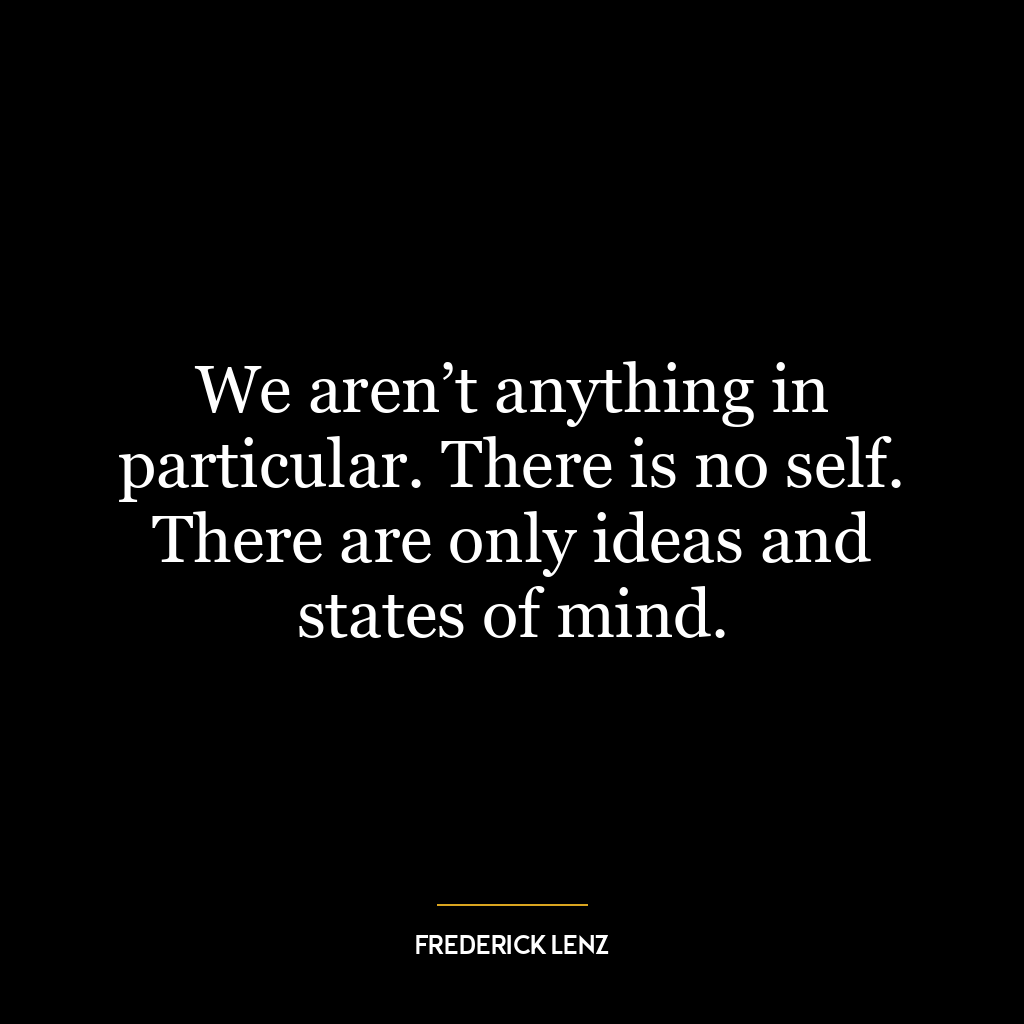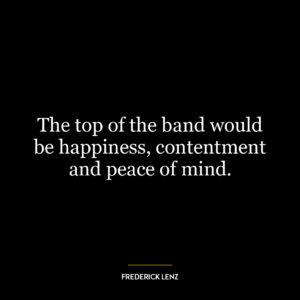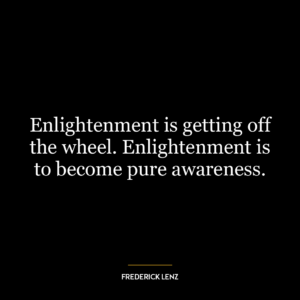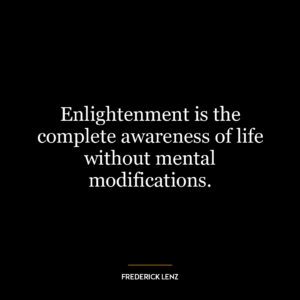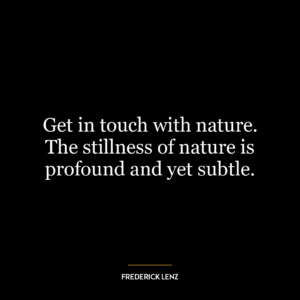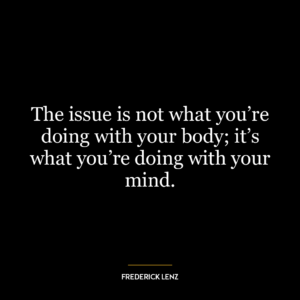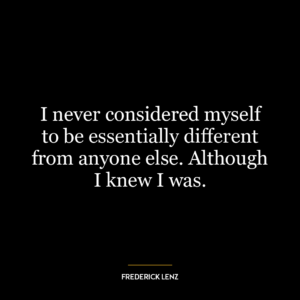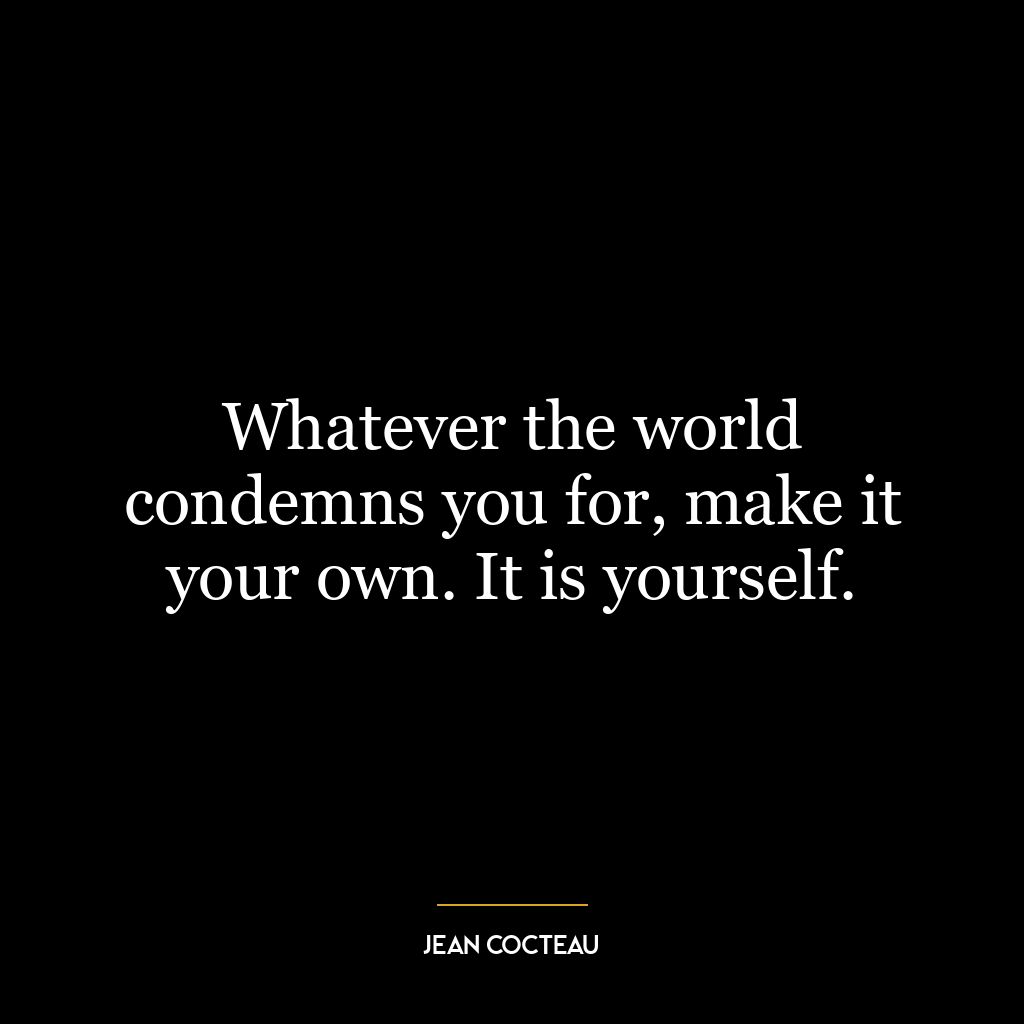We aren’t anything in particular. There is no self. There are only ideas and states of mind.
The quote “We aren’t anything in particular. There is no self. There are only ideas and states of mind” is a profound exploration of the concept of self and identity. It suggests that our conception of ‘self’ is not a fixed, unchanging entity, but rather a fluid, ever-evolving collection of ideas and mental states.
This perspective aligns with the Buddhist concept of ‘Anatta’ or ‘non-self’, which posits that there is no unchanging, permanent self, soul or essence in living beings. It suggests that what we perceive as our ‘self’ or ‘identity’ is merely a temporary and ever-changing combination of physical and mental components.
The ‘ideas’ mentioned in the quote can be understood as our beliefs, values, concepts, and knowledge that we acquire and develop throughout our lives. These ideas shape our perception of the world and our place in it.
‘States of mind’, on the other hand, can refer to our emotions, thoughts, and attitudes at any given moment. These mental states are transient and can fluctuate greatly based on various factors such as our environment, experiences, interactions, and even our physical health.
Applying this idea to today’s world or personal development, it encourages us to be more open and adaptable. Instead of clinging to a rigid sense of self or identity, we can choose to see ourselves as dynamic beings, capable of growth, change, and evolution.
In terms of personal development, this perspective can be liberating. It means that we are not defined by our past actions, beliefs, or experiences. We have the capacity to change our ideas and states of mind, and thus, change our ‘self’.
Moreover, this concept can help in fostering empathy and understanding in our interactions with others. If we see ‘self’ as a collection of ideas and states of mind, we can better appreciate the diversity of human experiences and perspectives.
In conclusion, this quote challenges traditional notions of self and identity, and invites us to embrace a more fluid, dynamic understanding of our existence. It promotes personal growth, adaptability, and empathy, qualities that are increasingly important in our rapidly changing world.

